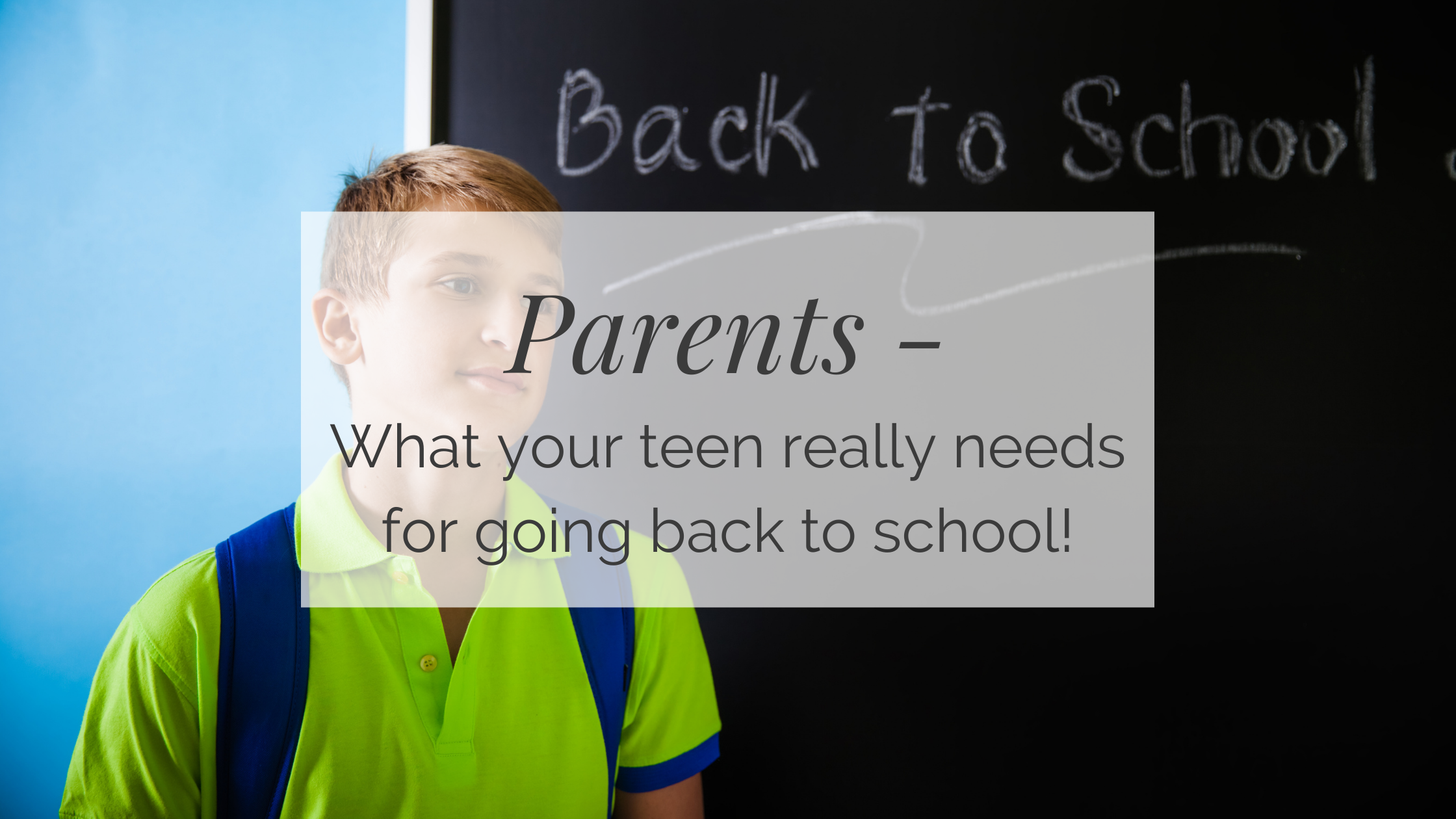Parents – What your teen really needs for going back to school!
School sucked. Maybe your teen feels the same way. That feeling stayed with me until college. The school was challenging and overwhelming because it was not (and is not) set up for students who have uniquely wired brains. Thankfully, I figured out what worked for me. It isn’t the same for everyone. What works for you probably won’t work for your teen.
There is so much advice out there, but it is all generalized. Rarely is it helpful! Your teen needs to build a specific system for themself. Uniquely wired brains need to create a system that is just as divergent.
Here is what you can do to help:
- Get a diagnosis – even if you don’t like labels. I didn’t have a diagnosis until I was an older student because it was the 1970s and 80s, and not my parents didn’t like labels. Since I didn’t have a reason (diagnosis) to understand why I was challenged at school, I gave labels like stupid, slow-poke, lazy, and so on, which, as it happens, I am not, but it took a long time to unlearn that.
- Get a 504 or IEP – you need a diagnosis to get this, but it can help take the stress away – yours and your teens! I talk to my student-age clients and their parents before 504/IEP meetings so that they come out of the meeting with the right accommodations for the way their brain works.
- Get the right help – whether it is therapy, coaching, group coaching, a tutor—more than one of these. It doesn’t matter how close you and your teen are; you can’t be your kid’s therapist or coach. I know I tried; she won’t let me coach her.
This year there is the added stress of “returning to normal” or maybe not because of variant strains of COVID. Your teen may not have attended in-person last year at all, which may be adding to anxiety about going back to school in person, especially if last year was their first year in middle or high school. They may have ended last school year going part of the time but are now concerned about getting used to a new schedule. Now that it looks like schools may be requiring masks regardless of vaccination status, some students who have is sensitivities may not be looking forward to it (many people with ADHD do have hypersensitivities).
Here is what you can do:
- Resist the urge to solve issues or fears for them.
- Ask how they would like to handle situations.
- Be understanding – being a teen is hard. Hormones are raging, and everything is a big deal, even the little stuff.
- Ask open-ended questions and only listen. That will allow them to think through an issue beforehand. No advice, just keep asking questions.
- Ask how you can help and be okay with it when they say let don’t want your help.
ADHD is a brain development issue, meaning it develops more slowly. According to Dr. Russell Barkley, the executive functions are about 30% behind. To name a few of those skills are paying attention, planning, organizing, emotional control, flexibility, and time awareness.
- Your 14-year-old freshman may emotionally react like he is 9.33-year-old.
- Your 16-year-old who recently got their driving permit may pay attention like a 10.67-year-old.
- The 18-year-old daughter who recently graduated from high school may have the planning skills of a 12-year-old.
This 30% delay doesn’t apply to how smart your teen is. All my clients are brilliant – the average IQ among people with ADHD is 123. Not bad for a group of people who lose track of time, forgets their lunch often, slams their door during arguments, and can’t pay attention to a whole conversation.
Here are my points in telling parents these things:
- Often generic books with tips, tricks, and strategies aren’t helpful – get your teen the right help.
- Your teen needs your empathy – while they may be thrilled to be going back to school because remote learning was more challenging, they probably still hate school.
- Your teen is not ready for you to let go completely. Even if your teen is trying to convince you to let go. That is typical teen behavior, but you need to understand that your teen still needs your support.

Big Bang Coaching, LLC provides coaching for the neurodiverse.














